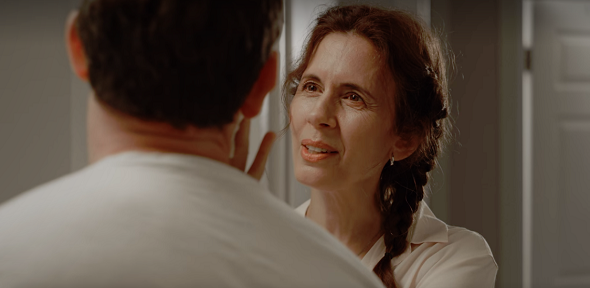Raising Films recently conducted a survey “to query the particular impact that caring responsibilities have on those within the [film industry], focusing on those who care for people other than dependent children, in particular partners, relatives, or children with specific disabilities,” a press release announced. The org, which advocates for parents and carers in UK film and TV, published the collected 135 responses as a report entitled “We Need to Talk About Caring.”
One of the main takeaways from the survey is that carers aren’t receiving the support they need from the UK film industry. In fact, 82 percent of respondents said “that the impact of caring on their role in the screen industries has been somewhat or strongly negative.” Not only is this a problem for carers’ career path, it can create even more of a financial strain, as 62 percent of respondents receive no financial support for their caring duties. However, 81 percent plan to continue working in film or TV for the next three years.
“My mum is 92 and has had symptoms of dementia for over 20 years,” one respondent, a woman screenwriter, explained. “She has been in residential care for nearly eight years, but prior to this I was her distance carer for over 10 years, to the detriment of my career, finances, and personal life. It has been exhausting, draining, and heartbreaking in every way.”
Many of the survey respondents do not have a full-time job. Fifty-one percent of women and 76 percent of men freelance at least part of the time. Overall, 36 percent of respondents earn less than £10,000 (about $12,700 USD) per year. Sixty-six percent of BAME (Black, Asian, and minority ethnic) individuals surveyed take home less than £10,000, as compared to 34 percent of their white counterparts.
These results indicate that carers working in the UK film sector are under immense personal, emotional, and professional pressure. The survey asked participants to list possible solutions to the challenges facing carers. The top three responses were “awareness, flexibility, and support.” “Our findings suggest that there is a strong desire from carers to remain in the industry and in-role,” the press release revealed. “Therefore increasing awareness, flexibility, and support through targeted training and returner schemes could ensure that the film and TV industries are able to hold on to this group of experienced and skilled workers.”
Raising Films has created a ribbon award for film and TV companies that commit to addressing carers’ concerns and proposed solutions. In order to be eligible for the Raising Films ribbon, a company will have to implement at least one of the following: inclusion of childcare and support for carers into projects’ pre-production, production and/or post-production; acknowledgement and financial support of parents or carers while they’re working away from home; commitment to building infrastructure that supports working parents and carers; flexible work/job-sharing; building awareness of parents and carers’ specific needs; and striving to change current industry norms and workplace culture.
Head over to Raising Films’ website to read the full “We Need to Talk About Caring” report.







